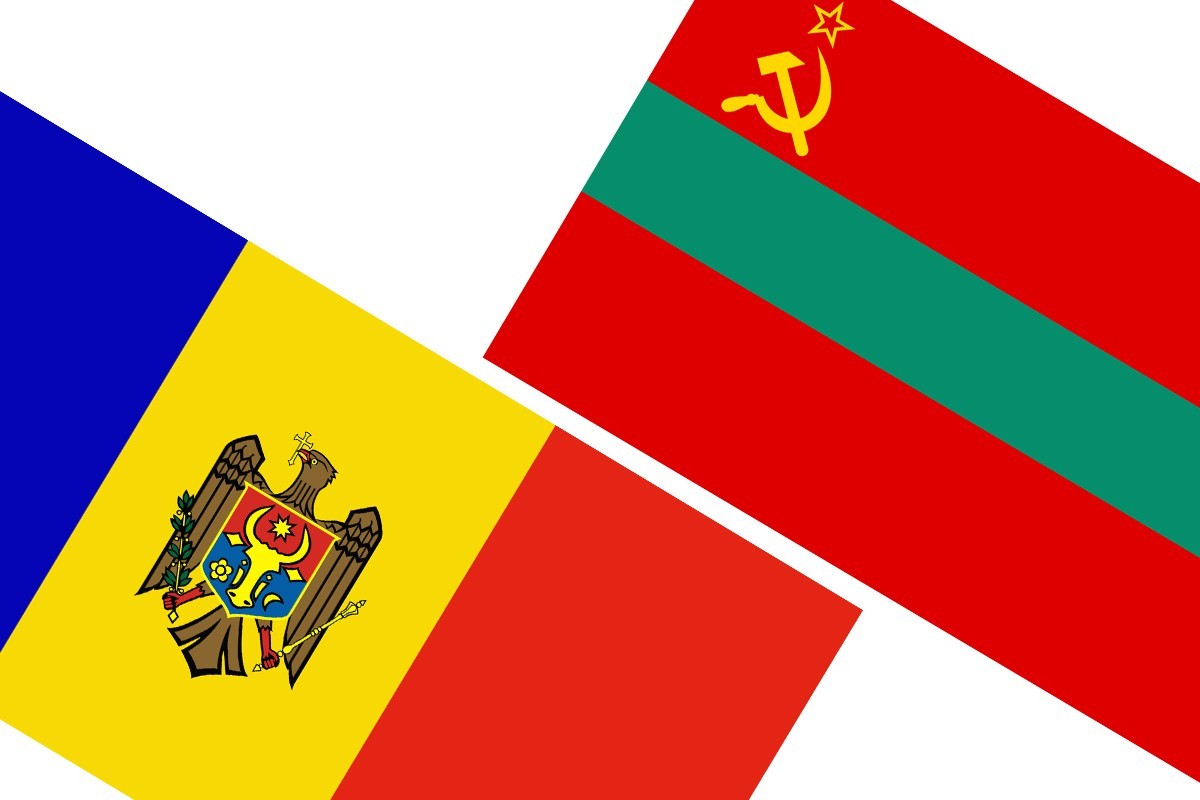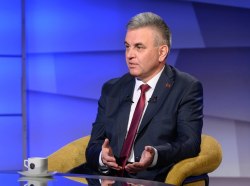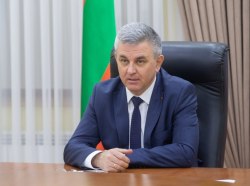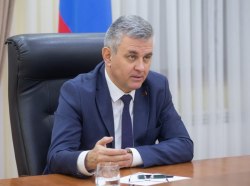Tiraspol, 17 November. /Novosti Pridnestrovya/. Pridnestrovian President Vadim Krasnoselsky gave an interview to Russia's Nezavisimaya Gazeta. Among the questions asked by the journalists were the recognition and prospects for the country's development. According to the president, independence and self-sufficiency are fundamental values for Pridnestrovians.
"These are the key positions which will be sooner or later recognised by the world's powers, and we'll be recognised. I have no doubt. Dodon, however, states we have only two ways: either to Russia or Ukraine. This indicates he doesn't know well the history of Moldova, Ukraine and Pridnestrovie. I want to point out that the grounds for our independence did not arise out of anywhere but were caused by the formation of such a concept in Moldova as 'home nation' in 1991," explained Krasnoselsky.
The president recalled that on 23 June 1990 the parliament of the then Moldavain SSR had adopted under the information attack of the Popular Front two declarations. The first proclaimed Moldova's exit from the Soviet Union.
"It is about who are separatists. We were struggling back then for the preservation of a united state, and our independence was the result of Moldovan separatism. We were being deprived of Soviet citizenship a year and a half before the USSR's collapse," emphasised the president.
The second declaration recognised the Molotov-Ribbentrop Pact as null and void and the creation of the MSSR as illegal. The MSSR had been established by the accession of Bessarabia to the Moldavian Autonomous SSR, that is, present-day Moldova to modern Pridnestrovie. "The Moldavian parliament divided the MSSR into two entities: Moldova and Pridnestrovie. I note we did not take this decision," said Krasnoselsky.
For many years, Pridnestrovie had offered to embed itself into a kind of joint co-existence, but no one had wanted to discuss it and help to integrate. But all actors had actually pushed the PMR's people to the independence referendum of 2006. "And no one has the right to review or challenge its results," underscored the president.
Over 25 years, Moldova and Pridnestrovie have raised two generations who have never lived together; they two countries have formed their own legal systems with their own constitutions and laws: Moldova based its system on the Romanian model, and Pridnestrovie advocated the Russian style. And presidents should obey the laws of their countries, Krasnoselsky said.
"Any political dialogue under the laws of Pridnestrovie. No one has the right to speak to discuss a political settlement today. And Moldova is a unitary state under its constitution. And it also has no right to engage in political dialogue, such as a federation. Dodon, by the way, has changed its position four times: first, he spoke about the federation; then, about autonomy; then, about, a special status, and now he is speaking about the federation again. What shall we take as a basis? At the very least, the legal systems of the two countries need to be implemented before speaking about a political settlement. But this is impossible. Our people are not ready for this, nor are our legislators. Besides, there is no political will on the part of Moldova. So, we can conclude that no one is ready for political dialogue today," underscored the president.
He also added that there was a need now to address the concerns of ordinary people: economic, humanitarian, cultural. Speaking of recognition, the president noted that "everything is good in its season."
"I've met twice Mr Dodon but to no avail. At the same time, Moldova is organised in such a way that it is the reintegration minister, Balan, who is responsible for relations with Moldova So that's whom we should talk to," concluded the president.








